Your search “Keep%20the%20death%20penalty%abolished%20in%20the%20ePhilippfines%20e ”

Member(s)
Association Justice et Miséricorde (AJEM)
on 30 April 2020
The Association Justice and Mercy (AJEM) is a Lebanese nonprofit, nonpolitical and nonsectarian nongovernmental organization (NGO) created in 1996 at the initiative of a group of social workers. AJEM deals mainly with the right of prisoners in Lebanon, and more generally with human rights, the fight against torture and other cruel, inhuman and degrading treatment, […]
2020
Lebanon
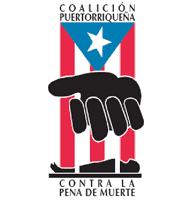
Member(s)
Puerto Rican Coalition Against Death Penalty
on 30 April 2020
The Puerto Rican Coalition against the Death Penalty (PCADP) is a non-party, non-sectarian organisation incorporated in Puerto Rico in March 2005 to promote the elimination of the capital punishment.The PCADP aims to join efforts among the different abolitionist organisations and activists in Puerto Rico. Its Statement of Principles emphasises that it does not believe in […]
Puerto Rico

Member(s)
Comité des Observateurs des Droits de l’Homme (CODHO)
on 30 April 2020
On 1 July 1997 a group of lawyers, economists and political scientists from the Democratic Republic of Congo (DRC) held a meeting following the massacre of children by militiamen in North Kivu in the east of the country. Revolted by this unspoken tragedy, they decided to set up the Committee of Human Rights Monitors (Codho). […]
Democratic Republic of the Congo

Member(s)
Coalizione italiana contro la pena di morte
on 30 April 2020
The Italian Coalition to Abolish the Death Penalty (ICADP) was established to form a network between both Italian and foreign groups, associations, movements, and individuals that oppose capital punishment, and to coordinate their work and efforts. The ICADP holds talks about the death penalty around the world, spreads information and promotes campaigns. It is especially […]
Italy

Article(s)
« A new Gambia » welcomes the 61st session of the ACHPR
By FIACAT and World Coalition against the Death Penalty, on 21 November 2017
From November 1st to November 15, 2017, the 61st session of the African Commission on Human and Peoples’ Rights, as well as the NGO Forum, took place in Banjul, Gambia. During the opening session, the President of The Gambia, Adama Barrow, confirmed the “New Gambia’s commitment” to human rights.
2017
Gambia

Article(s)
No reason to delay commencement of DDAA 2017
By Charles Hector - Ngeow Chow Ying, on 4 April 2018
The Dangerous Drugs Amendment Act which was passed by the Parliament and received a Royal Assent on December 27, 2017, only came into force on March 15, 2018.This statement deals with the fact that there was no reasons to this delay and it has condemned 10 persons to the mandatory dealph penalty for drug trafficking between december and february.
2018
Malaysia
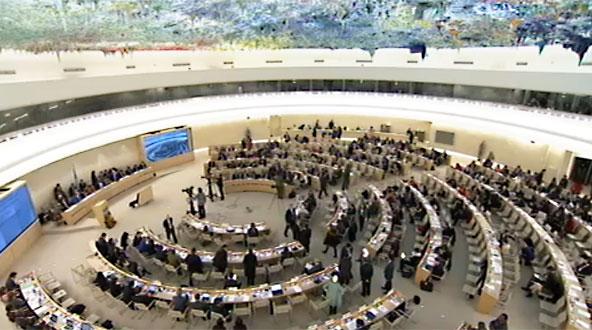
Article(s)
The United Nations Human Rights Council votes in favor of a new resolution on the death penalty
By Jessica Corredor, on 4 October 2017
After putting the death penalty at the heart of discussion, the 36th session of the United Nations Human Rights Council ended with the adoption of a resolution on the death penalty.
2017
Cruel, Inhuman and Degrading Treatment and Punishment

Article(s)
Applause for Pennsylvania’s death penalty moratorium
By Death Penalty Focus, "Free Mumia!" French Support Group, on 23 February 2015
Newly elected Governor Tom Wolf placed a moratorium on executions in Pennsylvania on 13 February until concerns about the fairness of the state’s death penalty system are addressed.
2015
Moratorium
United States
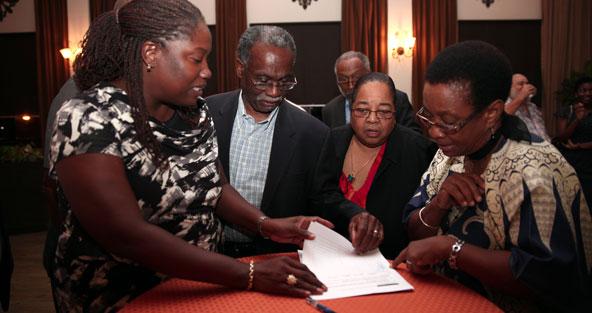
Article(s)
Events, strong words and hard facts to fight death penalty in the Caribbean
By Thomas Hubert, on 11 October 2013
As World Day Against the Death Penalty events unfolded on an unprecedented scale across the region, local activists and international organisations took a firm stance against capital punishment across the Caribbean.
2013
Bahamas
Barbados
Belize
Guatemala
Jamaica
Public Opinion
Puerto Rico
Saint Kitts and Nevis
Trinidad and Tobago
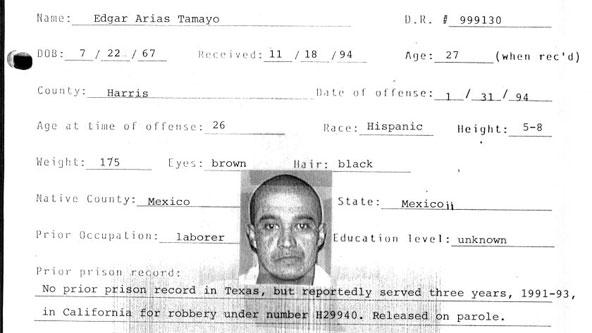
Article(s)
Mexico fights on after Texas illegally executes one of its nationals
By Thomas Hubert, on 23 January 2014
The execution of Edgar Tamayo in violation of an international court order spurs Mexico to pursue its efforts in favour of consular rights in the US, a diplomat says.
2014
Mexico
United States
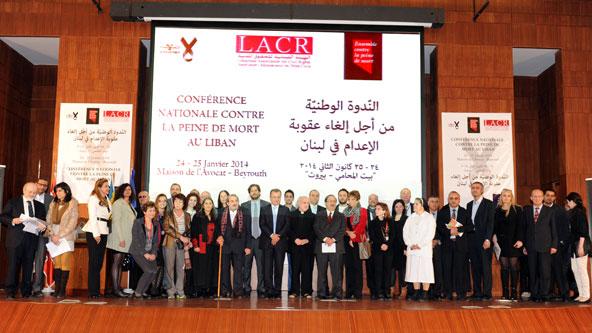
Article(s)
National conference gives Lebanese abolitionist movement a boost
By Thomas Hubert, on 14 February 2014
Several hundred activists, experts and political leaders met in Beirut at the end of January to push the abolitionist cause with the Lebanese authorities and organise their movement at the national level.
2014
Lebanon
Moratorium

Article(s)
Top UN representatives take stance on death penalty at Human Rights Council
By World Coalition Against the Death Penalty, on 14 March 2014
From UN Secretary General Ban Ki-moon to abolitionist and retentionist government ministers and World Coalition members, participants to a recent discussion on the death penalty placed the issue high on the international agenda.
2014
Afghanistan
Benin
Brazil
Cruel, Inhuman and Degrading Treatment and Punishment
Iran (Islamic Republic of)
Mongolia
Morocco
Myanmar
Namibia
Pakistan
Saudi Arabia
Sierra Leone
Singapore
Sudan
United States

Article(s)
Iraq’s frantic executions pace linked to serious human rights violations
By Thomas Hubert, on 27 March 2014
Iraq emerges as the country with the fastest-growing number of executions in Amnesty International’s new annual report on the death penalty. The World Coalition’s submission for Iraq’s upcoming UN human rights review calls for a moratorium on abusive executions.
2014
Fair Trial
Iraq
Iraq
Terrorism
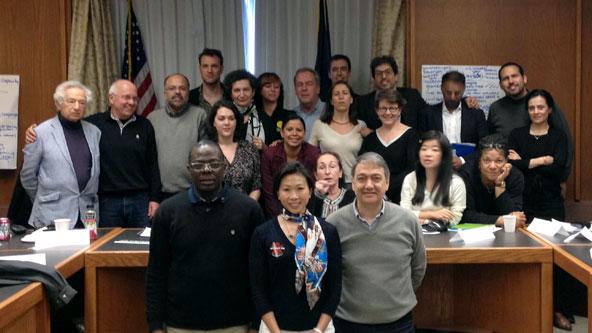
Article(s)
New Hampshire one vote short of abolition
By Emile Carreau, on 25 April 2014
A bill to repeal the death penalty in the US state of New Hampshire was blocked in the Senate on 22 April with votes for and against the bill deadlocked at 12-12. Despite the disappointment, Renny Cushing, Executive Director of World Coalition member organisation Murder Victims’ Families for Human Rights, sees some positives.
2014
United States
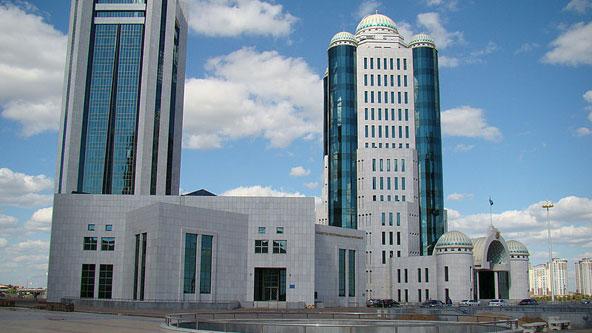
Article(s)
Kazakhstan Penal Code reform runs counter to abolitionist trend
By Anne Souléliac (Paris Bar), on 22 July 2014
The new Kazakh Penal Code provides for an increase in the number of capital crimes, even though Kazakhstan has been moving away from the death penalty for years and has a stated policy of meeting international standards.
2014
Kazakhstan
Kazakhstan
Terrorism

Article(s)
French youth event emboldens next abolitionist generation
By Bronwyn Dudley, on 22 October 2014
The testimony of an exonerated death row prisoners helped international students overcome initial awkwardness and launch into passionate debates at the invitation of Paris-based organisations on World Day Against the Death Penalty.
2014
France
Iran (Islamic Republic of)
Morocco
United States

Article(s)
Asia develops into hub of abolitionist dialogue
By Emile Carreau, on 6 November 2014
World Coalition member, Community of Sant’Egidio, has organised anti-death penalty conferences in Japan and the Philippines, both of which were overwhelmingly attended. Further conferences in the region are set to continue.
2014
Cambodia
India
Indonesia
Japan
Lao People's Democratic Republic
Philippines
Sri Lanka
Viet Nam

Article(s)
Gambia and Madagascar commit to irreversible abolition
By Aurelie Placais, on 22 September 2017
on 20 and 21 September 2017, Gambia signed and Madagascar ratified the Second Optional Protocol to the International Covenant on Civil and Political Rights, aiming at the abolition of the death penalty.
2017
Gambia
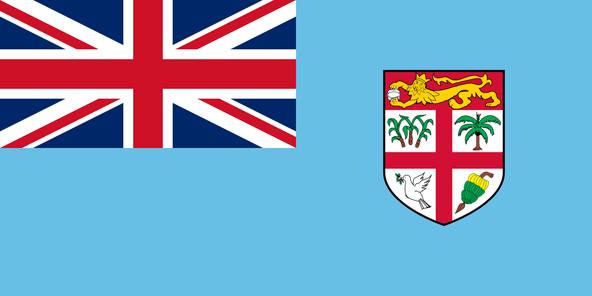
Article(s)
Fiji abolishes death penalty for all crimes through amendment to military law
By Auréie Plaçais, on 23 February 2015
On 9 February 2015, Attorney General Aiyaz Sayed-Khaiyum introduced in parliament the Republic of Fiji Military Forces amended Bill 2015, a one page bill to abolish the death penalty provision.
2015
Fiji
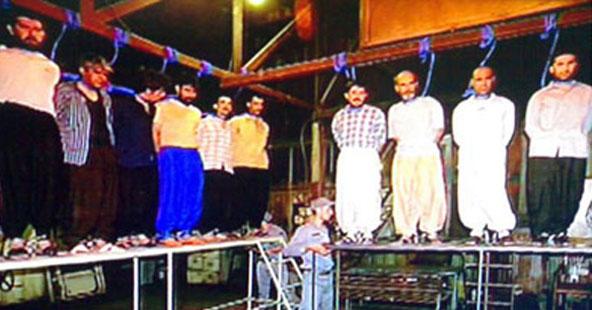
Article(s)
UN: freeze funding of Iran counter-narcotics efforts
By World Coalition Against the Death Penalty, on 17 December 2014
The World Coalition and its members call on UNODC to stop support to Iran as executions for drug trafficking surge.
2014
Drug Offenses
Iran (Islamic Republic of)
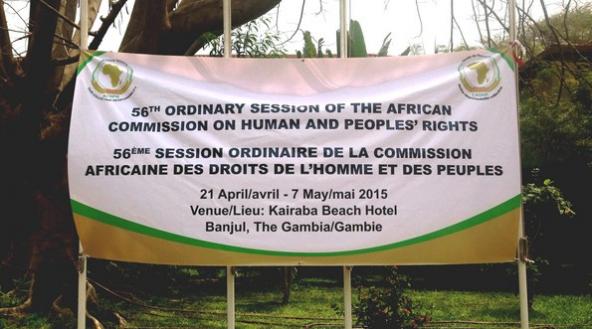
Article(s)
African Commission adopts draft Protocol on abolition
By Maria Donatelli, on 24 April 2015
At its 56th ordinary session, the African Commission on Human and Peoples Rights (ACHPR) put the abolition of the death penalty at the heart of its debates and adopted a draft regional treaty to help African Union member states move away from capital punishment.
2015
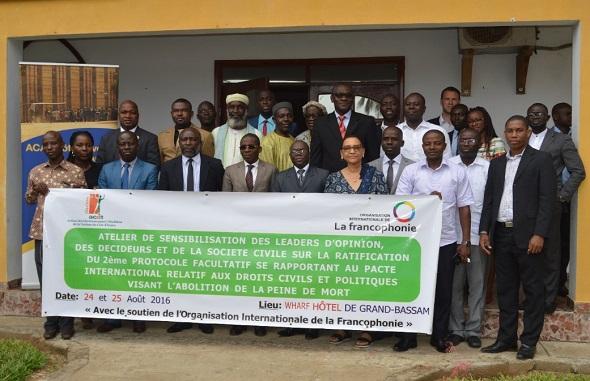
Article(s)
ACAT-CI commits to the ratification of OP2 in Côte d’Ivoire
By N'guettia Yves Arsene Kouadio - ACAT Côte d'Ivoire, on 4 January 2017
Action by Christians for the Abolition of Torture in Côte d’Ivoire (ACAT CI) has conducted advocacy activities between May and November 2016 in order to raise awareness on the Second Optional Protocol to the International Covenant on Civil and Political Rights (OP2), aiming at the abolition of the death penalty. This project has been supported by the International Organisation of la Francophonie (OIF) and the International Federation of ACAT (FIACAT).
2017
Côte d'Ivoire
Public Opinion
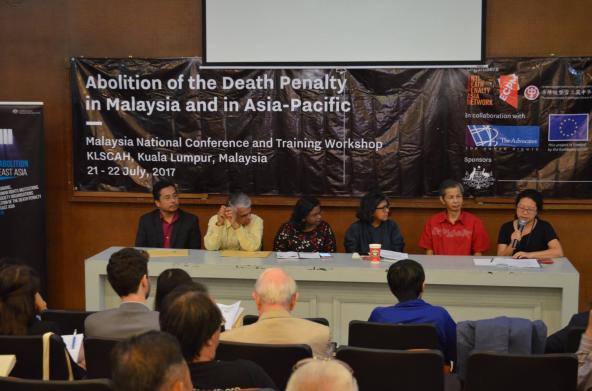
Article(s)
ADPAN network reinforces its strength in Asia
By Jessica Corredor, on 22 August 2017
The Anti-Death Penalty Asia Network held its third AGM in Kuala Lumpur, Malaysia on 20 July, followed by a national conference on the abolition of the death penalty in Malaysia and Asia-Pacific.
2017
Malaysia
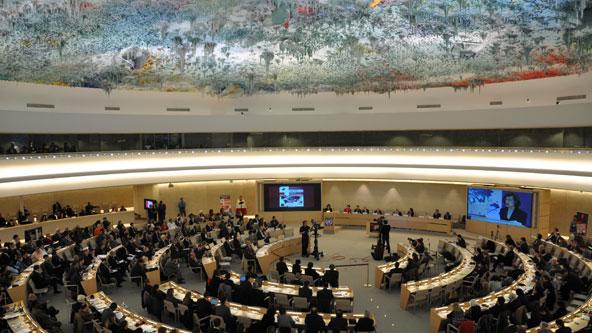
Article(s)
Discussion at the Human Rights Council of human rights violations related to the use of the death penalty
By Jessica Corredor, on 7 March 2017
From Zeid Ra’ad Al Hussein, United Nations High Commissioner for Human Rights, to abolitionist and retentionist government representatives and World Coalition members, participants to the Biennial high-level discussion on death penalty exchanged views in order to address human rights violations related to the use of the death penalty, in particular with respect to the prohibition of torture.
2017
Cruel, Inhuman and Degrading Treatment and Punishment

Article(s)
Philippines: House of Representatives must uphold international law obligations ahead of first death penalty vote
By Amnesty International & other organisations, on 19 February 2017
Nine international organisations are calling upon the Philippines to uphold its international obligations and not to restore death penalty in the country.
2017
Cruel, Inhuman and Degrading Treatment and Punishment
Philippines
Public Opinion
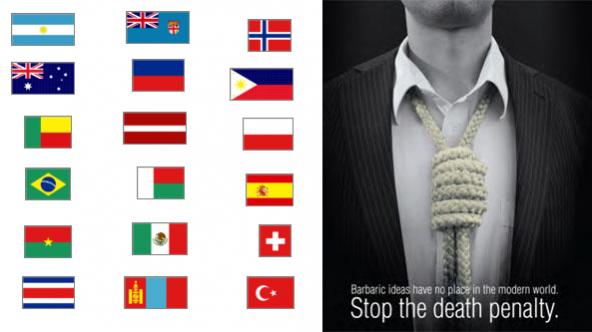
Article(s)
International support for abolition is continuing to grow – foreign ministers
By World Coalition Against the Death Penalty, on 9 October 2015
The Declaration signed by 18 Foreign Ministers from different world regions, including several that are still on a path towards abolition of the death penalty, brings one common message: International support for abolition is continuing to grow, driven by an increasing awareness of the death penalty’s inherent risks and shortcomings.
2015
Argentina
Australia
Benin
Brazil
Burkina Faso
Costa Rica
Fiji
Haiti
Latvia
Madagascar
Mexico
Mongolia
Norway
Philippines
Poland
Spain
Switzerland
Turkey

Article(s)
Sri Lanka: the death sentences of 60 prisoners commuted
By Elise Guillot, on 17 February 2017
Good news from Sri Lanka: by decision of the President, the death sentences of 60 prisoners have been commuted.
2017
Sri Lanka
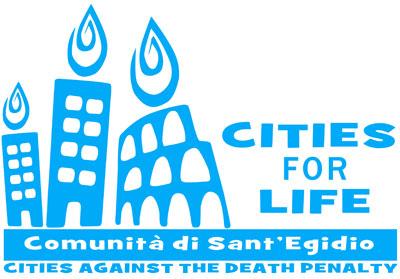
Article(s)
Cities for Life 2016: Let’s stay vigilant
By Emmanuel Trépied, on 19 December 2016
On 30 November, the International Day of “Cities for Life” was celebrated around the world. An opportunity to raise awareness among the civil society on the universal abolition.
2016
Public Opinion
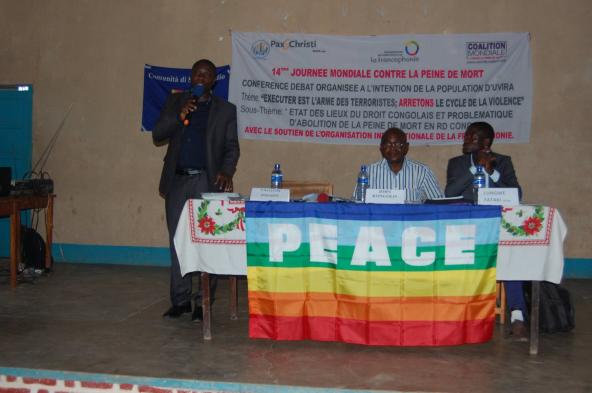
Article(s)
Towards the abolition of the death penalty in DRC: advances to be confirmed
By Olivier LUNGWE FATAKI - Pax Christi Uvira, on 13 December 2016
To date, the Democratic Republic of the Congo maintains the death penalty in its legislation. The proponents of the capital punishment argue that it remains an efficient tool for deterrence in general as well as a solution to the recurring criminal phenomenon hitting the country’s Eastern part.
2016
Democratic Republic of the Congo
Moratorium
Public Opinion
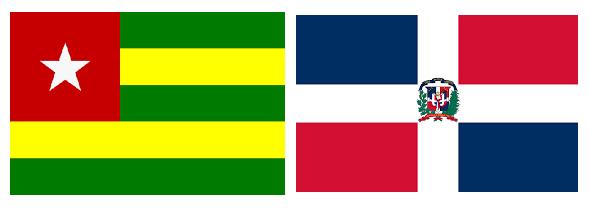
Article(s)
Irreversible abolition of the death penalty in Togo and the Dominican Republic
By Guillaume Colin and Aurélie Plaçais, on 27 September 2016
On 14 September 2016, Togo acceded to the Second Optional Protocol to the International Covenant on Civil and Political Rights on the abolition of the death penalty, joined on 21 September 2016 by the Dominican Republic. These accessions make abolition of the death penalty in Togo and the Dominican Republic irreversible.
2016
Dominican Republic
Togo
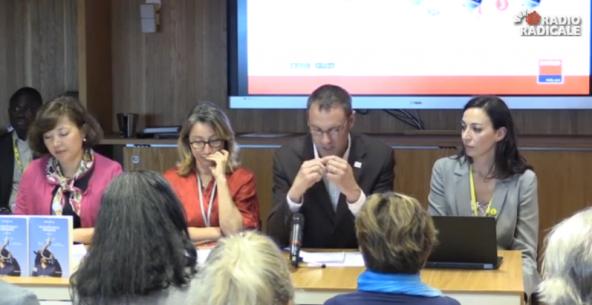
Article(s)
Event on the UNGA resolution for a moratorium on the use of the death penalty at the World Congress
By Federica Merenda, on 27 June 2016
In the context of the 6th World Congress Against the Death Penalty, the World Coalition together with Hands Off Cain and Amnesty International co-hosted a side event focusing on the 6th UNGA resolution for a moratorium on the use of the death penalty, whose adoption will be decided in New York in December this year.
2016
Moratorium

Article(s)
Divided opinions on death penalty in Belarus
on 8 October 2013
On the occasion of the World Day Against the Death Penalty, World Coalition member organizations Penal Reform International and Belarus Helsinki Committee are releasing a rare opinion poll on what people know and think about capital punishment in the last European country with the death penalty.
2013
Belarus
Belarus
Public Opinion
Document(s)
Annual Report On the Death Penalty in Iran 2023
By Iran Human Rights (IHRNGO) with the support of ECPM (Together Against the Death Penalty), on 14 March 2024
2024
NGO report
Iran (Islamic Republic of)
More details See the document
Published on March 5, 2024
This report has been drafted by Iran Human Rights (IHRNGO) with the support of ECPM (Together Against the Death Penalty). Since 2012, Iran Human Rights and ECPM have been working together for the publication, international release and distribution of annual reports on the death penalty in Iran.
The 16th annual report on the death penalty by Iran Human Rights and ECPM (Together Against the Death Penalty) provides an assessment and analysis of the 2023 death penalty trends in 2023 in the Islamic Republic of Iran. It sets out the number of executions in 2023, the trend compared to previous years, the legislative framework and procedures, charges, geographic distribution and a monthly breakdown of executions. Lists of the female and juvenile offenders executed in 2023 are also included in the tables. The report also looks into the abolitionist movement within Iran, including the forgiveness movement and its contribution to reducing the use of the death penalty, and provides analysis on how the international community can contribute to limiting the scope of the death penalty in Iran. The 2023 report is the result of hard work from Iran Human Rights members and supporters who took part in reporting, documenting, collecting, analysing and writing of its contents. We are especially grateful to Iran Human Rights sources inside Iran who incur a significant risk by reporting on unannounced and secret executions in prisons of 30 different provinces. Due to the very difficult context, the lack of transparency and the obvious risks and limitations that human rights defenders face in the Islamic Republic of Iran, this report does not give a complete picture of the use of the death penalty in Iran by any means. There are 46 reported executions which are not included in this report due to a lack of sufficient details or an inability to confirm cases through two different sources. However, it aims to provide the most complete and realistic figures possible in the present circumstances. The current report does not include suspicious deaths in custody, death row prisoners who died in prison before the executions or those killed under torture. ECPM supports the elaboration, editing process, publishing and distribution of this report in the framework of its international advocacy work against the death penalty. The problems of transparency on the data and information about the death penalty in Iran should be overcome by a strong strategy of distribution and dissemination. The overall objectives of this report for Iran Human Rights and ECPM are to call attention to and publicise the facts, in order to change national and international views on the situation of the death penalty in Iran, first executioner country in the world.
- Document type NGO report
- Countries list Iran (Islamic Republic of)
Document(s)
Children, Youth and the Death Penalty
By International Commission against the Death Penalty, on 23 June 2023
2023
NGO report
Juveniles
More details See the document
ICDP announces the launch of its latest report: Children, Youth and the Death Penalty. The issue of how the death penalty affects children and youth is often ignored by policy makers. This report aims to change that by putting the protection of children’s rights at the center of the debate on the death penalty.
The report builds on the panel discussion titled “Youth and the Death Penalty,” which was organized by the International Commission against the Death Penalty (ICDP) and the Government of Australia. The discussion was held on 29 June 2022, at the sidelines of the 50th session of the UN Human Rights Council, in Geneva.
- Document type NGO report
- Themes list Juveniles
Document(s)
Death by Design: Part 2
By The Wren Collective, on 23 January 2024
2024
NGO report
Legal Representation
United States
More details See the document
Published in December 2023.
In “Death by Design” Parts 1 and 2, Wren investigated the state of court-appointed capital representation in Harris County—the death penalty capital of the world. The second report examines why that poor representation has thrived, and the ways that the judges overseeing those cases have enabled it to continue that way.
Wren recommends a total overhaul to the system of capital representation for poor defendants in Harris County, with either the public defender absorbing those cases or the judges establishing a new, freestanding capital public defender that is independent from judicial oversight.
- Document type NGO report
- Countries list United States
- Themes list Legal Representation
Document(s)
Defending Women and Transgender Persons Facing Extreme Sentences: A Practical Guide
on 14 January 2022
2022
Legal Representation
Legal Representation
Women
frMore details See the document
Written by a team including experts in the fields of capital defense, gender rights, gender-sensitive mitigation and the rights of transgender persons, the guide includes sections on gender-based violence, women’s mental health, prison conditions, discrimination in the legal system, working with the media, and how to build a gender-sensitive team. It also includes a step-by-step gender-sensitive interview protocol that builds on resources developed by the anti-violence community and is tailored to the needs of defense teams.
- Document type Legal Representation
- Themes list Legal Representation / Women
- Available languages Défendre les femmes et les personnes transgenres confrontées à des peines extrêmes
Document(s)
Prison Conditions in Jamaica
on 19 April 2011
2011
NGO report
Death Row Conditions
Jamaica
More details Download [ pdf - 396 Ko ]
In criminal justice matters, Jamaica has been rightly praised for its de-facto abolitionist
stance on the death penalty: nobody has been executed on the island since 1988.
However, the alternative to death is imprisonment. For many years, NGOs, the UN
Human Rights Committee, the Inter-American Commission on Human Rights, and
various independent and internal reports have expressed serious concern about the
conditions in which Jamaica detains its prisoners.
- Document type NGO report
- Countries list Jamaica
- Themes list Death Row Conditions
Document(s)
Leaflet – World Day 2024 & 2025
By World coalition against the death penalty, on 10 June 2024
2024
Campaigning
World Coalition
arfrMore details Download [ pdf - 1325 Ko ]
Every 10th October, the World Coalition Against the Death Penalty and abolitionist actors worldwide celebrate the World Day Against the Death Penalty. It is an occasion to highlight the progress achieved in the global campaign for the abolition of capital punishment. In 2024 and 2025, the World Day will serve as an opportunity to challenge […]
- Document type Campaigning / World Coalition
- Available languages كتيب - اليوم العالمي 2024 و 2025Brochure - Journée mondiale 2024 & 2025
Document(s)
Leaflet – World Day 2022
By the World Coalition Against the Death Penalty, on 24 June 2022
2022
World Coalition
arfrMore details Download [ pdf - 1095 Ko ]
Leaflet for the 20th World Day against the death penalty (2022), on torture and the death penalty.
- Document type World Coalition
- Available languages للیوم العالمي لمناھضة عقوبة الإعدام كتيب باللغة العربيةBrochure - Journée mondiale 2022
Document(s)
Educational guide: teaching abolition
By World Coalition against the death penalty , on 10 October 2011
2011
Campaigning
Trend Towards Abolition
frMore details See the document
In 2009, the World Day Against the Death Penalty was
dedicated to the theme “Teaching Abolition”. The World
Coalition developed a teaching guide to be used in
schools throughout the world
- Document type Campaigning
- Themes list Trend Towards Abolition
- Available languages Guide pédagogique: éduquer à l'abolition
Document(s)
Lebanon – Committee on the Elimination of Discrimination Against Women – Death Penalty
on 12 January 2022
2022
NGO report
World Coalition
Lebanon
Women
More details Download [ pdf - 1599 Ko ]
This report addresses Lebanon’s compliance with human rights obligations under the Convention on the Elimination of All Forms of Discrimination Against Women regarding its use of the death penalty.
Lebanon has not abolished the death penalty or established a de jure moratorium on the death penalty. The legal system does not protect women in conflict with the law from discrimination on the basis of sex or gender. Nor does it limit capital offenses to the “most serious” crimes.
Women migrant domestic workers appear to be at an elevated risk of being sentenced to death. Indeed, all three women known to be on death row in Lebanon are Sri Lankan migrant domestic workers. Such women face heightened obstacles to realizing their right to a fair trial. Moreover, there is no evidence that sentencing authorities take into account a woman’s history of abuse when determining an appropriate sentence. Finally, women under sentence of death face degrading conditions of detention.
- Document type NGO report / World Coalition
- Countries list Lebanon
- Themes list Women
Document(s)
22nd World Day Against the Death Penalty – FACTS AND FIGURES
By World coalition against the death penalty, on 8 July 2024
2024
Campaigning
World Coalition
frMore details Download [ pdf - 206 Ko ]
- Document type Campaigning / World Coalition
- Available languages 22e Journée mondiale contre la peine de mort - Faits et chiffres
Document(s)
Maldives – Committee Against Torture (LOIPR) – Death Penalty – June 2022
By The Maldivian Democracy Network (MDN) , on 21 July 2022
2022
NGO report
World Coalition
Cruel, Inhuman and Degrading Treatment and Punishment
Maldives
More details Download [ pdf - 1443 Ko ]
This report addresses the Maldives’ compliance with its human rights obligations with respect to the death penalty. Despite its long-standing, de facto moratorium on executions, the Maldives sentenced two people to death in 2019, after sentencing no one to death in 2018.[1] At the end of 2019, there were 19 people on death row in the Maldives – three of whom had exhausted their appeals and five of whom were juveniles when the crime was committed.[2] The Maldives sentenced another individual to death in 2022, which represented the first time the country sentenced a foreign national to death.[3] The continued use of the death penalty in sentencing is particularly concerning given evidence of due process violations, including the use of torture to obtain confessions, the lack of effective and accessible complaint mechanisms for detained individuals, the lack of an independent judiciary, and the use of the death penalty as a sentence for crimes committed by juveniles.
- Document type NGO report / World Coalition
- Countries list Maldives
- Themes list Cruel, Inhuman and Degrading Treatment and Punishment
Document(s)
Ambivalent Abolitionism in the 1920s: New South Wales, Australia
By Carolyn Strange, on 1 September 2022
2022
Academic report
Australia
More details See the document
In the former penal colony of New South Wales (NSW), a Labor government attempted what its counterpart in Queensland had achieved in 1922: the abolition of the death penalty. Although NSW’s unelected Legislative Council scuttled Labor’s 1925 bill, the party’s prevarication over capital punishment and the government’s poor management of the campaign thwarted abolition for a further three decades. However, NSW’s failure must be analysed in light of ambivalent abolitionism that prevailed in Britain and the US in the postwar decade. In this wider context, Queensland, rather than NSW, was the abolitionist outlier.
This article was first published in Crime Justice Journal: https://www.crimejusticejournal.com/issue/view/119
- Document type Academic report
- Countries list Australia
Document(s)
2020 Activity Report
By World Coalition Against the Death Penalty, on 9 September 2021
2021
World Coalition
frMore details Download [ pdf - 496 Ko ]
Activity Report of the World Coalition Against the Death Penalty for 2020, as adopted by its General Assembly on 18 June 2021
- Document type World Coalition
- Available languages Rapport d'Activité 2020
Document(s)
Impact of the World Coalition’s Strategic Plan 2018–2022
By World Coalition Agianst the Death Penalty, on 22 August 2023
2023
World Coalition
Trend Towards Abolition
frMore details Download [ pdf - 265 Ko ]
- Document type World Coalition
- Themes list Trend Towards Abolition
- Available languages Impact du Plan stratégique 2018-2022 de la Coalition Mondiale
Document(s)
Compendium of case law of the European Court of Human Rights on the death penalty and extrajudicial execution
By Jeremy McBride, Council of Europe, on 24 April 2022
2022
International law - Regional body
Legal Representation
More details See the document
The compendium’s aim is to assist national judges, prosecutors and lawyers from the 46 member states of the Council of Europe to deal with extradition or deportation cases when there is a risk of the death penalty being imposed in third countries or of extrajudicial execution. It also aims at enabling legal professionals from countries where the death penalty still exists to develop arguments based upon the reasoning of the case law of the European Court of Human Rights. It contains relevant extracts from the Court’s case law, structured in a user-friendly way.
- Document type International law - Regional body
- Themes list Legal Representation
Document(s)
A/HRC/RES/54/35 Resolution adopted by the Human Rights Council
on 7 February 2024
2024
International law - United Nations
aresfrruzh-hantMore details See the document
- Document type International law - United Nations
- Available languages A/HRC/RES/54/35قرار اعتمده مجلس حقوق اإلنسانA/HRC/RES/54/35 Resolución aprobada por el Consejo de Derechos HumanosA/HRC/RES/54/35 Résolution adoptée par le Conseil des droits de l’hommeA/HRC/RES/54/35 Резолюция, принятая Советом по правам человекаA/HRC/RES/54/35 人权理事会 通过的决议
Document(s)
2022 World Day Report
By World coalition against the death penalty, on 12 June 2023
2023
Campaigning
World Coalition
frMore details Download [ pdf - 1557 Ko ]
On 10 October 2022, the World Coalition and abolitionists around the world celebrated the 20th World Day Against the Death Penalty (‘World Day’). Every year on World Day, the World Coalition highlights one problematic aspect of the Death Penalty.
- Document type Campaigning / World Coalition
- Available languages Rapport journée mondiale 2022
Document(s)
Briefing Paper on the death penalty in Middle East & North Africa
By Penal Reform International, on 8 September 2020
2020
Academic report
More details See the document
NGO coalition report submitted to the Office of the United Nations High Commissioner on Human Rights
- Document type Academic report
Document(s)
Moving away from the death penalty
By Office of the High Commissioner for Human Rights (OHCHR) , on 1 January 2015
2015
International law - United Nations
More details See the document
The present publication provides an extensive review of global trends in death penalty matters, a summary of the applicable international legal standards, and the current status of legislative reform related to the death penalty in South-East Asia. As a product of the OHCHR Regional Office for South-East Asia, this publication is intended to be a resource for further discussions in the region toward the abolition of the death penalty.
- Document type International law - United Nations
- Themes list Trend Towards Abolition,
Document(s)
THE RACIAL GEOGRAPHY OF THE FEDERAL DEATH PENALTY
By Robert J. Smith / Ben Cohen / Washington Law Review, on 1 January 2010
2010
Article
United States
More details See the document
Scholars have devoted substantial attention to both the overrepresentation of black defendants on federal death row and the disproportionate number of federal defendants charged capitally for the murder of white victims. This attention has not explained (much less resolved) these disquieting racial disparities. Little research has addressed the unusual geography of the federal death penalty, in which a small number of jurisdictions are responsible for the vast majority of federal death sentences. By addressing the unique geography, we identify a possible explanation for the racial distortions in the federal death penalty: that federal death sentences are sought disproportionately where the expansion of the venire from the county to the district level has a dramatic demographic impact on the racial make-up of the jury. This inquiry demonstrates that the conversation concerning who should make up the jury of twelve neighbors and peers—a discussion begun well before the founding of our Constitution—continues to have relevance today. Louisiana, Missouri, Virginia and Maryland referred to.
- Document type Article
- Countries list United States
- Themes list Networks,
Document(s)
Migratory dependency and the death penalty: Foreign nationals facing capital punishment in the Gulf
By Lucy Harry, Carolyn Hoyle , and Jocelyn Hutton Death Penalty Research Unit, Centre for Criminology, University of Oxford, on 30 January 2024
2024
Academic Article
Jordan
Kuwait
Lebanon
Qatar
Saudi Arabia
United Arab Emirates
More details See the document
Published on July 2, 2023
This article focuses on the cases of 664 foreign nationals, the majority of whom are migrant workers, under sentence of death across the Gulf states (including Jordan and Lebanon) between 2016 and 2021. The features of these cases suggest that they are inextricably linked to migrant workers’ dependency under the kafala system, with examples of migrants duped into smuggling drugs across the border by their migrant broker, and once in country, accounts of violent altercations due to disputes about exit visas, and in the case of migrant domestic workers, self-defence against sexual violence. Engaging with the burgeoning literature on immigration, exploitation and criminalisation, as well as scholarship on capital punishment, this article will explore the multiple and unique layers of dependency fostered by the kafala system that place migrant workers at higher risk of the death penalty in these Gulf jurisdictions.
- Document type Academic Article
- Countries list Jordan / Kuwait / Lebanon / Qatar / Saudi Arabia / United Arab Emirates
Document(s)
Pathways to abolition
By Death Penalty Worldwide / Cornell Law School, on 1 January 2016
2016
Academic report
More details See the document
This report documents the processes by which 14 jurisdictions abolished the death penalty in law. The conclusions attempt to identify patterns and draw conclusions in the hope that they will provide ideas, insights and inspiration to countries that either already are on their path to abolition or yet have to embark on it.
- Document type Academic report
- Themes list Trend Towards Abolition, Country/Regional profiles,
Document(s)
Death Penalty in India: Annual Statistics Report 2023
By Project 39A, on 15 February 2024
2024
NGO report
India
More details See the document
Published in 2023.
This is the eighth edition of the Death Penalty in India: Annual Statistics Report. This annual publication presents changes in the death row population as well as political and legal developments in the administration of the death penalty in India each year. The statistics are compiled through a combination of data mining of court websites, media monitoring and Right to Information applications.
- Document type NGO report
- Countries list India
Document(s)
Palestine – Committee Against Torture – Death Penalty – June 2022
on 21 July 2022
2022
NGO report
World Coalition
State of Palestine
More details Download [ pdf - 1747 Ko ]
The State of Palestine on 1 April 2014 ratified the Convention against Torture and Other Cruel, Inhuman or Degrading Treatment or Punishment. On 28 December 2017, the State of Palestine signed the Optional Protocol to the Convention against Torture and Other Cruel, Inhuman or Degrading Treatment or Punishment. On 18 March 2019, the State of Palestine also ratified the Second Optional Protocol to the International Covenant on Civil and Political Rights (ICCPR), which aims to abolish the death penalty. The State of Palestine has not yet abolished the death penalty. Indeed-as described herein-the 14 June 2007 split in power between the Palestinian Authority in Ramallah in the West Bank under President Abbas, and the Hamas movement in Gaza, has been followed by many documented executions in Gaza without the requisite signature of President Abbas, and Gazan military courts conduct trials of civilians, where they can be sentenced to death.
This report considers the prevalence of torture and other issues ancillary to the death penalty itself: confessions under torture or degrading treatment, due process, access to legal counsel, death-row conditions, and methods of execution.
- Document type NGO report / World Coalition
- Countries list State of Palestine
Document(s)
Bloodshed and Lies: Mohammed bin Salman’s Kingdom of Executions
By Reprieve UK and European Saudi Organization for Human Rights, on 31 January 2023
2023
NGO report
Saudi Arabia
arMore details See the document
Saudi Arabia is a flagrant abuser of the right to life. Between 2010 and 2021, Saudi Arabia executed at least 1243 people, making it one of the most rampant executioners in the world. As of December 2022, the Saudi regime had executed at least a further 147 people in 2022, including 81 people in one day in a mass execution on 12 March 2022.
Saudi Arabia’s use of the death penalty has drastically increased since 2015. This escalation has taken place on the watch of Saudi Arabia’s King Salman, who acceded the throne on 23 January 2015, and his son, Crown Prince and Prime Minister Mohammed bin Salman. The annual rate of executions has almost doubled since King Salman and Mohammed bin Salman came to power in 2015. From 2010-2014 there was an average of 70.8 executions per year. From 2015-2022 there was an average of 129.5 executions per year – a rise of 82%. The six bloodiest years of executions in Saudi Arabia’s recent history have all occurred under the leadership of Mohammed bin Salman and King Salman (2015, 2016, 2017, 2018, 2019 and 2022).
- Document type NGO report
- Countries list Saudi Arabia
- Available languages سفك الدماء والأكاذيب: مملكة إعدام محمد بن سلمان
Document(s)
Guess Who’s Coming to Jury Duty? How the Failure to Collect Juror Demographic Data Contributes to Whithewashing the Jury Box
By Berkeley Law Death Penalty Clinic , on 30 April 2024
2024
Academic report
United States
More details See the document
Published on February 2024.
Founded in 2001, the Berkeley Law Death Penalty Clinic seeks justice for individuals facing capital punishment by providing high-quality representation and offers students a rich opportunity for meaningful, hands-on experience in high stakes, complex litigation. The clinic also tackles problems endemic to the administration of the death penalty and the criminal legal system.
The report continues the clinic’s racial justice research and advocacy by cataloging the states that gather prospective jurors’ self-identified race and ethnicity and those that do not. It examines what courts do with the information, including whether it is provided to the court and counsel for use during jury selection, and the consequences of these choices in furthering or obstructing jury representativeness and diversity. In particular, the report shows why the collection of prospective jurors’ self-identified race and ethnicity is vital to meeting state and federal fair cross-section guarantees and eliminating the discriminatory exercise of peremptory challenges.
- Document type Academic report
- Countries list United States
Document(s)
“Don’t let them kill us”: Iran’s relentless execution crisis since the 2022 uprising
By Amnesty International, on 4 April 2024
2024
NGO report
Iran (Islamic Republic of)
faMore details See the document
Published in 2024.
This research briefing documents the horrifying surge in executions in Iran in 2023, the highest in eight years. More than half of the executions were for drug-related offences amid a distressing return to a lethal antinarcotics policy since Ebrahim Raisi’s rise to presidency in 2021. With systemic impunity in Iran, the briefing reiterates the need for states to initiate criminal investigations under the principle of universal jurisdiction into crimes under international law committed by Iranian officials, irrespective of the absence or presence of the accused in their territory. Since the “Woman Life Freedom” uprising of September-December 2022, the Iranian authorities have weaponized the death penalty to create a pervasive climate of fear across the country, exert control over the population, and suppress dissent and any challenge to their iron grip on power. As a result, 2023 saw an exponential increase in the number of recorded executions. The authorities executed at least 853 people in 2023, a 48% increase from 2022 when 576 people were executed and a 172% increase from 2021 when 314 people were executed. Amnesty International believes that the real number of executions is higher, but the Iranian authorities are not transparent about the number of people executed each year and do not make data on executions publicly available.
- Document type NGO report
- Countries list Iran (Islamic Republic of)
- Available languages « ن گ راذ ی د ام ار دنشکب » نارحب مادعا یب یاه ناما رد اریا شزیخ نامز زا ن لاس 1
Document(s)
Death by Design: Part 1
By The Wren Collective , on 23 January 2024
2024
NGO report
Legal Representation
United States
More details See the document
Published in December 2023.
In “Death by Design” Parts 1 and 2, Wren investigated the state of court-appointed capital representation in Harris County—the death penalty capital of the world.The first report delves into the failings of the lawyers in capital cases.
Wren recommends a total overhaul to the system of capital representation for poor defendants in Harris County, with either the public defender absorbing those cases or the judges establishing a new, freestanding capital public defender that is independent from judicial oversight.
- Document type NGO report
- Countries list United States
- Themes list Legal Representation
Document(s)
Right Here, Right Now Life Stories from America’s Death Row
By Lynden Harris, on 10 August 2021
2021
Book
Death Row Conditions
United States
More details See the document
Upon receiving his execution date, one of the thousands of men living on death row in the United States had an epiphany: “All there ever is, is this moment. You, me, all of us, right here, right now, this minute, that’s love.”
Right Here, Right Now collects the powerful, first-person stories of dozens of men on death rows across the country. From childhood experiences living with poverty, hunger, and violence to mental illness and police misconduct to coming to terms with their executions, these men outline their struggle to maintain their connection to society and sustain the humanity that incarceration and its daily insults attempt to extinguish.
By offering their hopes, dreams, aspirations, fears, failures, and wounds, the men challenge us to reconsider whether our current justice system offers actual justice or simply perpetuates the social injustices that obscure our shared humanity.
- Document type Book
- Countries list United States
- Themes list Death Row Conditions
Document(s)
Testimonies tool – World Day 2022
By the World Coalition Against the Death Penalty, on 28 June 2022
2022
World Coalition
frMore details Download [ pdf - 764 Ko ]
The World Coalition and its members have collected testimonies of victims of torture in the death penalty. Confessions, death row phenomenon, moments before the execution, psychological torture of those not sentenced to death, methods of execution. Read the stories of these victims.
We thank all those who agreed to share their testimonies and their stories.
- Document type World Coalition
- Available languages Outil témoignages - Journée mondiale 2022
Document(s)
Mobilization Kit World Day 2022
By the World Coalition Against the Death Penalty, on 9 June 2022
2022
World Coalition
frMore details Download [ pdf - 892 Ko ]
For the 20th year in a row, the World Coalition Against the Death Penalty is calling for local initiatives and world-wide actions that shine a spotlight on the abolition of the death penalty. The goal of this Mobilization Kit is to inform of this year’s objectives as well provide ideas of activities that boost the global abolitionist goal. This year’s World Day is dedicated to people who, during the process of being sentenced to death, or following the sentence of their death, have been victims of torture.
- Document type World Coalition
- Available languages Kit de mobilisation Journée mondiale 2022
Document(s)
Investigating Attitudes to the Death Penalty in Indonesia Part One – Opinion Formers: An Appetite for Change
By Carolyn Hoyle - The Death Penalty Project, in partnership with LBH Masyarakat and the University of Indonesia, on 28 June 2021
2021
NGO report
Drug Offenses
Indonesia
Public Opinion
More details See the document
In 2019-20, The Death Penalty Project, in partnership with LBH Masyarakat and the University of Indonesia, commissioned Professor Carolyn Hoyle, of The Death Penalty Research Unit at the University of Oxford to conduct research investigating attitudes towards the death penalty in Indonesia.
The findings have been presented in a two-part report; the first details the findings of a nuanced public survey and the second details the findings of interviews conducted with opinion formers.
- Document type NGO report
- Countries list Indonesia
- Themes list Drug Offenses / Public Opinion
Document(s)
The Myth of Autonomy Rights
By Kathryn E. Miller, on 20 July 2022
2022
Article
United States
More details See the document
Supreme Court rhetoric, scholarly discussion, blackletter law, and ethical rules have perpetuated a myth that individual rights protect the autonomy of defendants within the criminal legal system. To expose this myth, I examine six rights that the Court has enshrined as essential decision points for criminal defendants due to the rights’ purported expressive and consequential functions: (1) the right to self-representation; (2) the right to plead guilty; (3) the right to waive a jury; (4) the right to testify; (5) the right to waive appeals; and (6) the right to maintain innocence at a capital trial. I conclude that each of these rights fails to protect defendant autonomy.
I then argue that genuine displays of autonomy under the criminal legal system take the form of resistance to the law, legal advocates, and the legal system. Thus, the autonomy of criminal defendants occurs not because of law but in spite of it. As such, scholarly discussions of the personal autonomy of criminal defendants should focus not on rights and rules but on acts of resistance. The current autonomy rights discourse is harmful because it obscures the system’s defects by framing discussions around individual rights instead of structural limitations. This lends itself to solutions involving procedural tinkering to better actualize individual rights instead of radical structural reform or abolition. By obscuring these structural defects and stressing the system’s protective qualities, the autonomy rights discourse presents the system not only as legitimate, but as functional, and potentially even successful. As such, a new scholarly frame is warranted: autonomy as resistance to law and the legal system. By illuminating the ways in which autonomy in the criminal legal system resembles autonomy under the American institution of slavery, the autonomy as resistance frame exposes the need for radical structural change and facilitates a reimagining of the criminal legal system.
- Document type Article
- Countries list United States
Document(s)
Leaflet – World Day 2023
on 12 June 2023
2023
Campaigning
World Coalition
arfrMore details Download [ pdf - 1095 Ko ]
Leaflet for the 21th World Day against the death penalty (2023), on torture and the death penalty.
- Document type Campaigning / World Coalition
- Available languages كتيب - اليوم العالمي 2023Brochure - Journée mondiale 2023
Document(s)
Report of the Secretary General: Question of the death penalty 2021 (A/HRC/48/29)
By Office of the High Commissioner for Human Rights (OHCHR), on 15 September 2021
2021
United Nations report
Public Opinion
More details See the document
The present report is submitted pursuant to decision 18/117 and resolution 42/24 of the Human Rights Council. The report focuses on consequences arising from the lack of transparency in the application and imposition of the death penalty on the enjoyment of human rights.
- Document type United Nations report
- Themes list Public Opinion
Document(s)
Lethal injection in the modern era: cruel, unusual and racist
By Reprieve , on 24 April 2024
2024
NGO report
Cruel, Inhuman and Degrading Treatment and Punishment
United States
More details See the document
Published on April 2024.
Researchers at Reprieve conducted an in-depth comparative study of botched lethal injection executions in the modern era of the U.S. death penalty, cross-referenced against the 1,407 lethal injection executions carried out or attempted during that period.
This report examines the phenomenon of botched executions by lethal injection, exploring the trends and contributing factors leading to botched executions through an analysis of 73 botched executions in the 1,407 lethal injection executions since 1977 (known as the modern era of the death penalty in the U.S.). This analysis used a process called multi-variable logistic regression, a type of analysis that assesses the odds of something happening considering multiple variables, to assess how identifiable characteristics (gender, age, and race) were associated with botched executions.
- Document type NGO report
- Countries list United States
- Themes list Cruel, Inhuman and Degrading Treatment and Punishment
Document(s)
The Use of the Death Penalty as a Bargaining Chip in Innocence Cases
By Claudia I. Salinas, California Western International Law Journal, on 1 February 2024
2024
Academic Article
United States
More details See the document
Published in 2023.
While 70% of the world’s countries have abolished the death penalty, also known as capital punishment, much of the United States continues to use it in its criminal legal proceedings.According to the Death Penalty Information Center, at least 190 people were exonerated prior to their fated execution date after being wrongly convicted and sentenced to death in the United States. There is no way to tell how many of the 1,562 people, who have been executed in the United States, were actually innocent. As there are wrongful convictions still happening today, it is no surprise that most countries consider the death penalty a human rights issue.
- Document type Academic Article
- Countries list United States
Document(s)
American Death Penalty Exceptionalism, Then and Now
By Jordan Steiker, California Western International Law Journal , on 1 February 2024
Academic Article
United States
More details See the document
Published in October 2023.
The most commonly observed fact of American capital punishment is its present outlier status: the United States (U.S.) is the only developed Western democracy that retains the death penalty, and it does so not simply as a matter of law, but as a matter of practice, conducting numerous executions every year. This “exceptionalism” with respect to the death penalty is noteworthy, but focusing on present-day American retention obscures many additional aspects of American death penalty exceptionalism. This Keynote will trace several ways in which the American death penalty was an outlier at its founding and throughout its subsequent history, as well as the varied aspects of its exceptionalism today. I will conclude by predicting that U.S. exceptionalism will soon come to an end–with an “exceptional” form of death penalty abolition, traceable to the distinctive path of the American death penalty
- Document type Academic Article
- Countries list United States
Document(s)
Deterrence and the Death Penalty Guide
By The Death Penalty Project, on 1 November 2022
2022
NGO report
Public Opinion
More details See the document
The most common justification for the retention of the death penalty among the minority of states that continue to sentence to death and execute individuals who are found guilty of committing certain serious offences is a belief that this punishment has a unique deterrent effect. The Death Penalty Project produced this resource on deterrence and the death penalty.
- Document type NGO report
- Themes list Public Opinion
Document(s)
The Death Penalty For Drug Offences: Global Overview 2023
By Harm Reduction International, on 28 March 2024
2024
NGO report
Drug Offenses
More details See the document
Published in 2023.
At the end of 2023, 34 countries retained the death for drug offences. In July 2023 Pakistan took the landmark decision to remove the death penalty from the list of punishments that can be imposed for certain violations of its Control of Narcotics Substances Act. This year also saw notable progress in Malaysia, which abolished the mandatory death penalty for all offences, including drug-related ones. This reform may impact the lives of over 700 people on death row for drug offences and bring the country one step closer to total abolition of capital punishment. In stark contrast to these positive developments is the record-high number of drug-related executions in 2023 at least 467. Of those executed, at least 59 people belonged to ethnic minority groups (in Iran and in Singapore), 13 individuals were foreign nationals, and six were women. These figures confirm that these groups are uniquely vulnerable to capital punishment as a tool of drug control. Despite not accounting for the dozens, if not hundreds, of executions believed to have taken place in China, Vietnam, and North Korea, the 467 executions that took place in 2023 represent a 44% increase from 2022.
- Document type NGO report
- Themes list Drug Offenses
Document(s)
Malawi – Committee on the Elimination of Discrimination Against Women – Death Penalty – January 2022
on 31 January 2022
2022
NGO report
World Coalition
Malawi
Women
More details Download [ pdf - 311 Ko ]
Detention conditions for women in Malawi are crowded, and women in prisons are not given adequate food and nutrition. Specifically, many prisons only serve people with one meal a day, often consisting of a maize meal (nsima) and peas or beans. Overcrowded conditions are a particular concern during the COVID-19 pandemic, when risk of transmission of the disease is high. Prison conditions in Malawi amount to inhuman and degrading treatment.
Women in death penalty proceedings in Malawi lack access to qualified legal representation. Defense advocates in Malawi who are assigned to capital cases often lack relevant experience. In at least one case, a lawyer failed to raise the complete defense of self-defense in representing a woman who killed her husband as a result of a long history of domestic abuse. Had the defense been raised, it is possible that the woman would not have been sentenced to death. Moreover, women from poor and marginalized communities are disproportionately affected by the death penalty because when they are accused of crimes, they are often unable to understand the charges against them because they are illiterate and cannot read the complaint against them. They are also unable to retain private counsel.
Women who face extensive gender-based violence are disproportionately affected by the death penalty in Malawi, including those who seek to protect themselves against their abusers. Long histories of gender-based violence can result in complex trauma and can exacerbate psycho-social or intellectual disabilities, yet sentencing courts fail to take these nefarious effects into account as factors in mitigation of a death sentence.
- Document type NGO report / World Coalition
- Countries list Malawi
- Themes list Women
Document(s)
Debunking the deterrence theory
By World coalition against the death penalty, on 9 July 2024
2024
Campaigning
World Coalition
frMore details Download [ pdf - 593 Ko ]
- Document type Campaigning / World Coalition
- Available languages La théorie de la dissuasion démystifiée
Document(s)
Death Penalty in India – Annual Statistics Report 2021
By Project 39A, on 4 February 2022
2022
Academic report
India
More details See the document
Project 39A at the National Law University, Delhi published the sixth edition of the Death Penalty in India: Annual Statistics Report which provides an annual update on the use of the death penalty in India along with legislative and international developments on the issue. As on 31st December 2021, there were 488 prisoners on death row across India (a steep rise of nearly 21% from 2020), with Uttar Pradesh having the highest number at 86. This is the highest the death row population has been since 2004 as per the data from the Prison Statistics published by the National Crime Records Bureau.
- Document type Academic report
- Countries list India
Document(s)
Public Opinion and the Death Penalty Guide
By The Death Penalty Project, on 1 November 2022
2022
NGO report
Public Opinion
More details See the document
When faced with calls to join the majority of states worldwide that have now abolished capital punishment, a key justification, typically relied upon by retentionist states, is that their citizens are not yet ready for abolition, and that political leaders must represent ‘the will of the people.’ The Death Penalty Project produced this resource on public opinion and the death penalty.
- Document type NGO report
- Themes list Public Opinion
Document(s)
Capital Punishment in the Philippines
By Arlie Tagayuna / Southeast Asian Studies, on 1 January 2004
2004
Article
Philippines
More details See the document
While an examination of the social and political currents of each country would perhaps be the best way to answer the question “Why is there strong support for capital punishment in Southeast Asia?”, this paper will begin this effort by looking specifically at the Philippines, a society that has received more exposure to democratic tenets and human rights advocacy than other Southeast Asian countries (Blitz, 2000).
- Document type Article
- Countries list Philippines
- Themes list Public opinion,
Document(s)
How the European Union Works: Your guide to the EU institutions
By European Union, on 1 January 2007
2007
Working with...
fresMore details See the document
The European Union (EU) is a family of democratic European countries working together to improve life for their citizens and to build a better world. The following chapters describe the Treaties, the EU institutions and the other bodies and agencies, explaining what each entity does and how they interact.
- Document type Working with...
- Themes list Networks,
- Available languages Comment fonctionne l'Union européenneEl Funcionamiento de la Unión Europea: Guía del Ciudadano sobre las Instituciones de la UE
Document(s)
Middle East and North Africa: Algeria, Egypt, Jordan, Lebanon, Morocco and Tunisia
By Penal Reform International, on 1 January 2012
2012
NGO report
More details See the document
The aim of this research paper is to provide upto-date information about the laws and practices relating to the application of the death penalty. It includes an analysis of the alternative anctions to the death penalty (life and long-term imprisonment) and whether they reflect international human rights standards and norms.
- Document type NGO report
- Themes list Cruel, Inhuman and Degrading Treatment and Punishment, Death Row Phenomenon, Country/Regional profiles,
Document(s)
Death Penalty in the Palestinian Legal System A Legal review
By Maan Shihda Ideis / Independent Commission for Human Rights , on 1 January 2010
2010
NGO report
More details See the document
This study analyzes the Palestinian legislations in light of the UN procedures and criteria on the issuance, imposition or execution of death sentences. The study is divided into two main parts, each of which is dedicated to either the international or national legislation on death penalty. This part is divided into two main chapters. Chapter One addresses the substantive provisions on death penalty and Chapter Two is concerned with the procedural provisions. This classification is inline with the international efforts for the abolition of death penalty, particularly because the UN, in its capacity as the representative of the international community, has not banned the capital punishment but opted for the introduction of a number of legal actions for the States to consider when they include such penalty in their legislations, or when such sentences are issued by the courts or actually executed. Thus, the procedural and the substantive provisions are addressed separately in this study, both at the international and national levels.
- Document type NGO report
- Themes list International law,
Document(s)
REPORT AND RECOMMENDATIONS ON THE ADMINISTRATION OF THE DEATH PENALTY IN CALIFORNIA
By CALIFORNIA COMMISSION ON THE FAIR ADMINISTRATION OF JUSTICE, on 1 January 2008
2008
Government body report
More details See the document
This report is divided into three parts. In Part A, the Commission identifies flaws in California’s death penalty system that render it dysfunctional, and remedies we unanimously recommend to repair it. Repairing the system would enable California to achieve the national average of a twelve year delay between pronouncement of sentence and the completion of all judicial review of the sentence. In Part B, the Commission offers the Legislature, the Governor, and the voters of California information regarding alternatives available to California’s present death penalty law. The Commission makes no recommendation regarding these alternatives. In Part C, the Commission presents recommendations relating to miscellaneous aspects of the administration of California’s death penalty law. We were not able to reach unanimous agreement upon all of these recommendations, and dissents are noted where applicable. Commissioner Jerry Brown, Attorney General of California, agrees in principle with some of the Commission’s recommendations as set forth in his separate statement. Commissioner William Bratton, Chief of Police for the City of Los Angeles, abstains from the specific recommendations in this Report, and will issue a separate explanatory statement.
- Document type Government body report
- Themes list Networks,
Document(s)
Georgian : უვადო თავისუფლების აღკვეთისა და გრძელვადიანი სასჯელების გამოყენება და აღსრულება საქართველოში
By Penal Reform International / Tsira Chanturia / Maia Khasia / Jacqueline Macalesher, on 8 September 2020
2020
NGO report
ruMore details See the document
საქართველოში ბოლო განაჩენი სიკვდილით დასჯის შესახებ აღსრულებულ იქნა სავარაუდოდ 1992/93 წლებში. სიკვდილით დასჯილთა შესახებ სტატისტიკურიინფორმაცია გამოთხოვილ იქნა სასჯელაღსრულების პრობაციისა და იურიდიული დახმარების სამინისტროს სასჯელაღსრულების დეპარტამენტიდან, თუმცა მიღებული პასუხის თანახმად, აღნიშნული ინფორმაცია ვერ იქნა მოძიებული
- Document type NGO report
- Themes list Trend Towards Abolition,
- Available languages Отмена смертной казни и альтернативные наказания на Южном Кавказе: Азербайджан, Армения, Грузия
Document(s)
Death Penalty in the Palestinian Legal System: A Legal Review
By Maan Shihda Ideis / Independent Commission for Human Rights , on 1 January 2010
2010
International law - Regional body
arMore details See the document
ICHR carried out this review in order to assist the PNA in its attempts to join international community that did abolish death penalty from their legal system. In order for the PNA to ratify the various international conventions stipulating respect for the right to life and prohibits the execution of every human being. In this study, ICHR aims to define the practical steps that the PNA should take in order to abolish death penalty from the Palestinian legal system. According to Article (10) of the Basic Law of 2002, the human rights and fundamental freedoms shall be binding and respected by the PNA which shall, without delay, accede to the regional and international declarations and instruments that protect human rights, especially those international charters and resolutions that governing the right to life, the abolition of death penalty, and/or placing restrictions on the procedures of its execution.
- Document type International law - Regional body
- Themes list Networks,
- Available languages مراجعة قانونية لعقوبة الإعدام في سطيني
Document(s)
The Death Penalty: A Worldwide Perspective
By Roger Hood / Carolyn Hoyle / Oxford University Press, on 1 January 2014
2014
Book
More details See the document
The Death Penalty: A Worldwide Perspective by Roger Hood and Carolyn Hoyle is the Fourth Edition of a text that highlights the latest developments in the death penalty around the world. Roger Hood utilizes his experience as a consultant to the United Nations’ annual survey of capital punishment in compiling a wide range of information from non-governmental organizations and academic literature. The book explores both the advances in legal challenges to the death penalty and the reduction in executions, while noting the continued existence of human rights abuses. Problems include unfair trails, police abuse, painful forms of execution, and excessive periods of time spent in inhumane conditions on death row. The authors explore the latest issues related to capital punishment such as deterrence, arbitrariness, and what influence victims’ families should have in sentencing.
- Document type Book
- Themes list Death Penalty,
Document(s)
A Perverse and Ominous Enterprise: The Death Penalty and Illegal Executions in Saudi Arabia
By Helena Kennedy, on 1 January 2019
2019
International law - Regional body
More details See the document
The evidence reviewed demonstrates frequent and heavy-handed recourse to the death penalty by Saudi Arabia in recent months. At least 149 people were executed in 2018, with at minimum 46 remaining on death row at the end of the year. A significant proportion of those executed were political dissidents, and a number were children at the time of their alleged offending. Each of these features connotes a grave violation of international human rights norms.
- Document type International law - Regional body
Document(s)
The abolition of the death penalty and its alternative sanction in Eastern Europe: Belarus, Russia and Ukraine
By Penal Reform International / Alla Pokras, on 1 January 2012
2012
NGO report
ruMore details See the document
This research paper focuses on the application of the death penalty and its alternative sanction in three countries of Eastern Europe: the Republic of Belarus, the Russian Federation and kraine. Its aim is to provide up-to-date information about the laws and practices relating to the application of the death penalty in this region, including an analysis of the alternative sanctions to the death penalty and whether they reflect international human rights standards and norms.
- Document type NGO report
- Themes list Cruel, Inhuman and Degrading Treatment and Punishment, Death Row Phenomenon, Country/Regional profiles,
- Available languages Отмена смертной казни и ее альтернативы в странах Восточной Европы: Беларуси, России, Украине
Document(s)
Tunisia – Committee Against Torture (LOIPR) – Death Penalty – June 2022
on 21 July 2022
2022
NGO report
World Coalition
Cruel, Inhuman and Degrading Treatment and Punishment
Tunisia
More details See the document
Tunisia carried out its last execution in 1991, over 30 years ago. Despite this de facto moratorium on executions, Tunisian courts continue to sentence people to death. Courts sentence people to death every year for a variety of crimes, especially terrorism. The current administration is undoing many of the positive changes to the Tunisian judicial system brought about by the 2011 revolution, and public opinion is divided over whether to move forward with abolition, maintain the status quo, or even resume executions, a course of action that some politicians and officials within the government support. Tunisia continues to support the UN resolutions aiming to establish a global moratorium on executions but has refused to ratify the Second Optional Protocol to the International Covenant on Civil and Political Rights.
This report recommends that Tunisia maintain its commitment to the UN moratorium and move to ratify the Second Optional Protocol, while also working to restore the independence of its judiciary and reducing the total number of crimes punishable by death in the short term. In the long-term Tunisia should completely and unconditionally abolish the death penalty.
- Document type NGO report / World Coalition
- Countries list Tunisia
- Themes list Cruel, Inhuman and Degrading Treatment and Punishment
Document(s)
Data Mapping: Women on Death Row
By World Coalition against the Death Penalty , on 1 August 2023
2023
NGO report
Gender
frMore details Download [ pdf - 813 Ko ]
In 2021, the 19th edition of the World Day Against the Death Penalty (“World Day” on October 10) was dedicated to the invisible reality of women on death row, paving the way for new data on the issue of women sentenced to death. Many members of the World Coalition Against the Death Penalty (“World Coalition”), in preparation for 10 October, conducted research to document the situations of women facing the death penalty around the world. To systematize the information collected and have a global understanding of women sentenced to death, the World Coalition conducted a data systematization exercise.
This short report presents the main conclusions of this country exercise. These findings are a compilation of existing data available to the World Coalition Against the Death Penalty and its members organization up to December 2022.
- Document type NGO report
- Themes list Gender
- Available languages Cartographie de données : les femmes dans le couloir de la mort
Document(s)
Arbitrary and Capricious: Examining Racial Disparities in Harris County’s Pursuit of Death Sentences
By Texas Defender Service, on 24 April 2024
2024
NGO report
United States
More details See the document
Published on February 2024.
Texas has executed more people than any other state. However, out of the 254 counties in Texas, 136 have never sent an individual to death row. Harris County—Texas’s largest county and home to the city of Houston—stands out as the “death penalty capital of the world.” Harris County has executed more people than any state in the United States except Texas3 and is responsible for a quarter of the 1,124 people who have been sent to Texas’s death row since 1973.
- Document type NGO report
- Countries list United States
Document(s)
Somebody’s Child: Amid the Lingering Trauma of Trump’s Executions, a New Project Brings Families to Federal Death Row
By The Intercept, on 15 February 2024
2024
Article
United States
More details See the document
Published on February 11, 2024.
In 2002, Ra’id was arrested alongside several other suspects following a botched bank robbery that left two people dead and another paralyzed. His co-defendants pointed to him as the mastermind, which Ra’id adamantly denied. “I did not take part in that atrocity,” he told the court following his trial. “I did not shoot and kill anyone.”
Newson attended his father’s sentencing hearing, along with his mother, Jeannie Gipson-Newson. A death sentence would be “devastating to my child,” she remembered testifying. But it felt futile. The jurors seemed to have made up their minds. In 2004, Ra’id was sentenced to die.
- Document type Article
- Countries list United States
Document(s)
Mobilization Kit World Day 2023
By World coalition against the death penalty, on 12 June 2023
2023
Campaigning
World Coalition
frMore details Download [ pdf - 864 Ko ]
For the 21th year in a row, the World Coalition Against the Death Penalty is calling for local initiatives and world-wide actions that shine a spotlight on the abolition of the death penalty. The goal of this Mobilization Kit is to inform of this year’s objectives as well provide ideas of activities that boost the global abolitionist goal. This year’s World Day is dedicated to people who, during the process of being sentenced to death, or following the sentence of their death, have been victims of torture.
- Document type Campaigning / World Coalition
- Available languages Kit de mobilisation Journée mondiale 2023
Document(s)
Malaysia: On Death Row
By Al Jazeera, on 1 January 2019
2019
Multimedia content
Malaysia
More details See the document
In Malaysian jails, more than 1,200 prisoners are on death row. For them, news that the government was planning to abolish the death penalty provided a much-needed glimmer of hope. But many Malaysians want to keep the law as it is, saying capital punishment deters criminals and helps keep citizens safe. Families of murder victims say the only way to get justice for their loved ones is by hanging the perpetrators. 101 East meets the people on either side of this emotional life-and-death debate and investigates if Malaysia is ready to abolish the death penalty.
- Document type Multimedia content
- Countries list Malaysia
- Themes list Moratorium , Murder Victims' Families, Death Row Phenomenon,
Document(s)
Carrying out executions took a secret toll on workers — then changed their politics
By Chiara Eisner, on 16 November 2022
2022
Article
United States
More details See the document
Most of the workers NPR interviewed reported suffering serious mental and physical repercussions. But only one person said they received any psychological support from the government to help them cope. The experience was enough to shift many of their perspectives on capital punishment. No one who NPR spoke with whose work required them to witness executions in Virginia, Nevada, Florida, California, Ohio, South Carolina, Arizona, Nebraska, Texas, Alabama, Oregon, South Dakota or Indiana expressed support for the death penalty afterward, NPR found.
- Document type Article
- Countries list United States
Document(s)
The death penalty and the prohibition of torture and other cruel, inhuman or degrading treatment or punishment
on 21 August 2021
2021
NGO report
World Coalition
Cruel, Inhuman and Degrading Treatment and Punishment
frMore details See the document
The signatory organizations are convinced that the death penalty is incompatible with the prohibition of torture and cruel, inhuman or degrading treatment or punishment, which is a peremptory norm of international law (jus cogens) and should thus be abolished. The death penalty is only tolerated by international law and standards to the extent that it may only be imposed for the most serious crimes and applied in a way that causes the least possible suffering. However, the signatory organizations believe that from the sentencing to the execution, the death penalty inevitably causes physical harm and psychological suffering amounting to torture or ill-treatments.
The present position paper documents the extent to which international and regional organisation have already recognised a violation of the absolution prohibitionof torture in the application and imposition of the death penalty.
- Document type NGO report / World Coalition
- Themes list Cruel, Inhuman and Degrading Treatment and Punishment
- Available languages La peine de mort et l'interdiction de la torture et des peines ou traitements cruels, inhumains ou dégradants
Document(s)
Proven With(out) Certainty: How Judges Sentence Defendants to Death for Drug Offences in Iran
By Abdorrahman Boroumand Foundation for the Promotion of Human Rights and Democracy in Iran, Monash University and ELEOS Justice, on 6 February 2024
2024
NGO report
Drug Offenses
More details See the document
Published in April 2023.
Despite the reduction in the number of executions for drug offences during 2018-2020, a sudden increase in executions was recorded during 2021-2023: at least 131 known executions were recorded for drug offences in 2021, 253 executions in 2022, and 82 executions during the first 3 months of 2023 (Table). However, information concerning the death penalty in Iran is notoriously difficult to obtain because of the secrecy surrounding the country’s criminal justice process. This note provides a rare glimpse into the application of capital drug laws in the Islamic Republic of Iran. It exposes the idiosyncratic practices of the judiciary and its decision-making, using cases concerning the death penalty for drug offences—its imposition prohibited long under international standards. These judgments repeatedly use the language of ‘certainty’ in convicting the accused. In reality, to those familiar with basic fair trial standards, they raise serious concerns about miscarriages of justice that could potentially result in the erosion of legitimacy of the criminal ‘justice’ system in Iran.
- Document type NGO report
- Themes list Drug Offenses
Document(s)
Death Penalty For Drug Offences: Global Overview 2021
on 21 March 2022
2022
NGO report
Drug Offenses
More details See the document
Harm Reduction International has monitored the use of the death penalty for drug offences worldwide since our first ground-breaking publication on this issue in 2007. This report, our eleventh on the subject, continues our work of providing regular updates on legislative, policy and practical developments related to the use of capital punishment for drug offences, a practice which is a clear violation of international law.
The Death Penalty for Drug Offences: Global Overview 2021 found that: 1) 35 countries still retain the death penalty for drug offences 2) At least 131 people were executed for drug offences in 2021 – a 336% increase from 2020. However, due to a severe lack of transparency, if not outright censorship, this is only a partial picture. This figure likely represents only a fraction of all drug-related executions carried out globally.
- Document type NGO report
- Themes list Drug Offenses
Document(s)
Explaining the Invidious: How Race Influences Capital Punishment in America
By Sheri Lynn Johnson, James and Mark Flanagan, Cornell Law School, on 1 September 2022
2022
Academic report
United States
More details See the document
This article primarily focuses on how racial bias creates nearly ubiquitous racial disparities in the imposition of the death penalty; it does so both to amass further reasons McCleskey was wrongly decided, and to point the way forward. Part I provides the necessary foundation by summarizing the history of race and the death penalty in the United States, with a focus on the Supreme Court’s treatment of racial discrimination claims in capital sentencing. Part II, the heart of this Article, examines the multiple psychological mechanisms that create racially biased decision making in capital cases. Understanding those mechanisms further undercuts the Supreme Court’s reasoning in McCleskey and argues for overturning the holding. However, recognizing the reluctance with which today’s Court would view overturning McCleskey, Part III considers whether and how alternative, case-specific uses of the data described in Part II might ameliorate the influence of racial bias in capital sentencing.
- Document type Academic report
- Countries list United States
Document(s)
Detailed Factsheet 2010
By World Coalition against the death penalty , on 10 October 2010
2010
Campaigning
Trend Towards Abolition
frMore details Download [ pdf - 479 Ko ]
Detailed Factsheet 2010
- Document type Campaigning
- Themes list Trend Towards Abolition
- Available languages Fiche détaillée 2010
Document(s)
The Death Penalty Worldwide – Developments in 2006 (With amendments)
By Amnesty International, on 8 September 2020
2020
NGO report
arfresMore details See the document
The world continued to move closer to the universal abolition of capital punishment during 2006. By the end of the year 88 countries had abolished the death penalty for all crimes. The death penalty has now been abolished in law or practice by 128 countries. Other subjects covered in this document include significant judicial decisions; the use of the death penalty against child offenders; resumptions of executions; and campaigning activities to promote abolition.
- Document type NGO report
- Themes list Statistics,
- Available languages التطورات المتعلقة بعقوبة العدام في شتى أنحاء العالم في العام ٢٠٠٦La peine de mort dans le monde : évolution en 2006LA PENA DE MUERTE EN EL MUNDO: NOTICIAS DEL AÑO 2006
Document(s)
Leaflet Lobbying
By World Coalition against the death penalty , on 10 October 2007
2007
Campaigning
Trend Towards Abolition
frMore details See the document
Leaflet Lobbying
- Document type Campaigning
- Themes list Trend Towards Abolition
- Available languages Brochure Lobbying 2007

